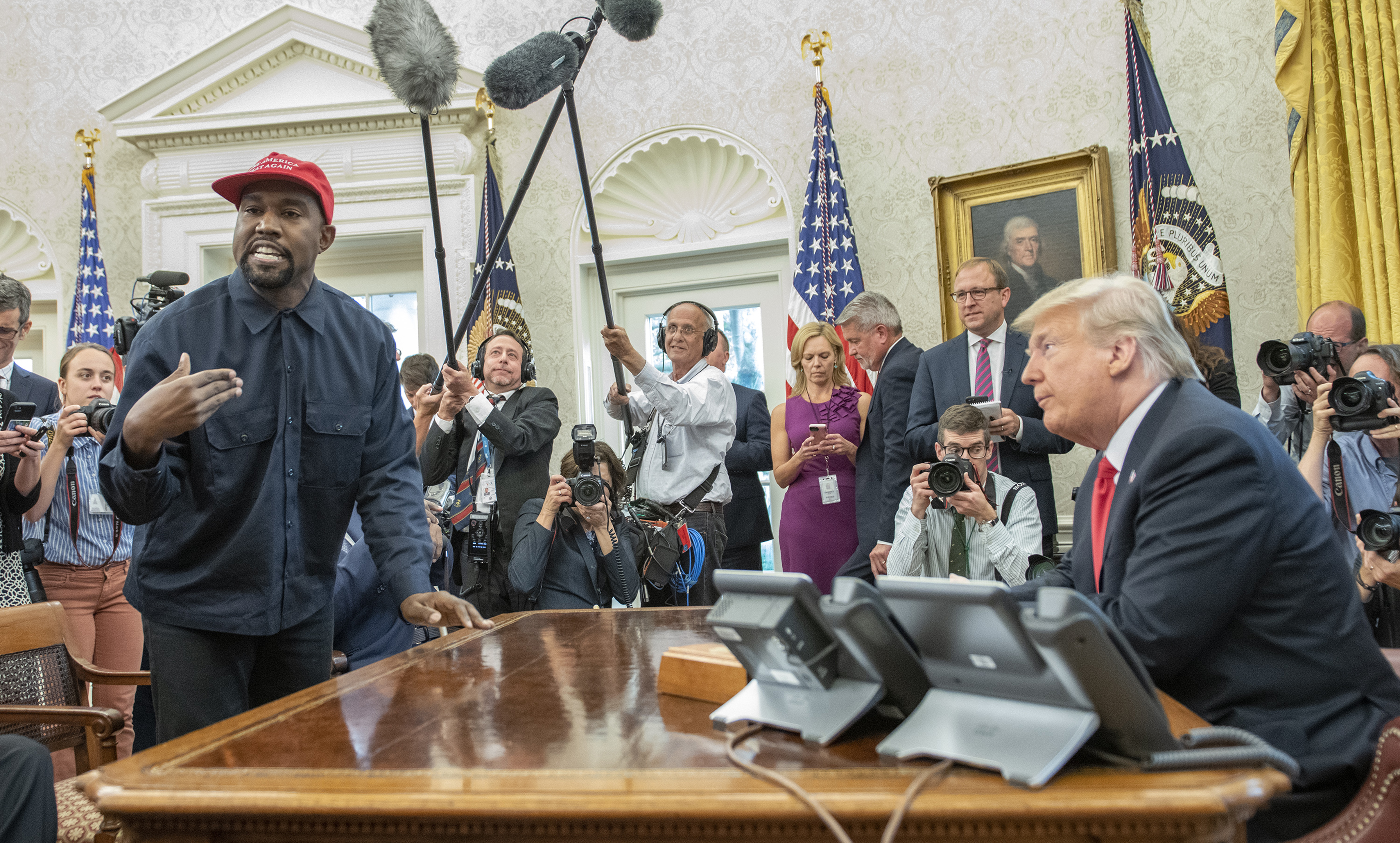Despite reactions and criticisms of Wonder’s relevance to Biden’s work on the Black agenda, celebrities have long engaged with presidents on policy issues.
A firestorm was ignited this week over the Black agenda, or as some critics argue, a lack thereof, after this reporter’s question at Monday’s White House press briefing of whether President Joe Biden is amenable to meeting with activist and music icon Stevie Wonder.
Wonder, 73, who served as a civil rights activist and humanitarian throughout his decades-long career, expressed his frustration over the civil and legal rollbacks impacting Black communities and wanted to meet with the Biden-Harris administration to discuss his concerns. A source close to Wonder said his efforts are meant to unify rather than divide.
White House Press Secretary Karine Jean-Pierre did not confirm or deny the possibility of a meeting at the time. Following the question posed by theGrio, however, a debate mostly along political lines ensued about the state of the Black agenda and Stevie Wonder’s place in it.
As the question was posed to Jean-Pierre, the front row of correspondents in the White House press briefing room giggled, which some on social media called disrespectful to the significance of Wonder and the very serious social and political threats to Black Americans.
Wonder is said to have been listening to the White House press briefing as the exchange happened in real-time.
There were particularly strong and negative online reactions from conservatives, who have, over the past few years, condemned race-based policies that they perceive as too “woke.”
Despite reactions and criticisms of Wonder’s relevance to President Biden’s work on the Black agenda, celebrities have long engaged with presidents on various policy issues. There was no such public ridicule or laughter, particularly in the briefing room, when former President Donald Trump invited rapper Kanye West, reality TV star Kim Kardashian, rock singer Kid Rock, or former NFL player Jim Brown to the White House for Oval Office visits.

The same could be said during the administration of President George W. Bush when musician and humanitarian Bono visited 1600 Pennsylvania Avenue to meet with the president.
Leon Russell, chair of the NAACP National Board of Directors, said he was “surprised” by the laughter in the press briefing room and public criticisms over Wonder’s potential meeting with the White House.
He told theGrio, “In an age where words like ‘authentic’ and ‘influencer’ are thrown around with abandon, it seems odd to me that an authentic voice from the Black community with a well-established audience would be received skeptically as a potential public policy influencer.”
He added, “Black entertainers have been major influencers throughout the struggle for civil and human rights.”
Whether it was Paul Robeson in the 1930s and 1940s or Jackie Robinson, Sidney Poitier, Harry Belafonte, Ossie Davis, and Ruby Dee at the height of the civil rights movement in the 1960s, Black celebrities have sought to influence public policy at all levels.
Wonder is notably credited for his efforts to establish a federal holiday celebrating the then-slain Dr. Martin Luther King Jr. for his life’s work as a civil rights leader and international humanitarian. The musician’s popular “Happy Birthday” song was recorded to promote the cause. Wonder’s activism is considered instrumental to the holiday’s eventual signing into law by President Ronald Reagan in 1983.

Mary Frances Berry, former chair of the U.S. Commission on Civil Rights, told theGrio that the meeting between Wonder and President Biden should happen.
“Even if Biden doesn’t do what would be done on the issues, it might help the president with the Black constituency, which sees him ignoring issues they care about,” said Frances Berry. She added, “There’s no risk for the President. Stevie is no radical.”
Former Arkansas state judge Wendell Griffen agrees with Wonder about pushing issues as part of the Black agenda, particularly voting rights. In his state last week, the U.S. Court of Appeals for the 8th Circuit further gutted the Voting Rights Act of 1965.
The federal court ruled that individual citizens could no longer bring legal claims that a state legislature violated the VRA under a key provision of the landmark law. Only the federal government led by the United States attorney general, the court argued, has that right.
“It’s gonna be that more difficult for the Black voters in the affected district to elect candidates of their choice,” said Griffen, who also believes “they’re going to be electing candidates…that have been forced on them because their voting power has been diluted.”
The 8th Circuit Court decision is expected to make its way to the U.S. Supreme Court.
Some of the issues of concern for Stevie Wonder are voting rights and what is now considered a post-affirmative action era after the conservative majority on the Supreme Court essentially ended the decades-long practice in college admissions.
To date, there is no official word on whether or when Wonder will be invited to the White House.
Never miss a beat: Get our daily stories straight to your inbox with theGrio’s newsletter.
The post Stevie Wonder’s request to meet with Biden is no laughing matter appeared first on TheGrio.

New Comments